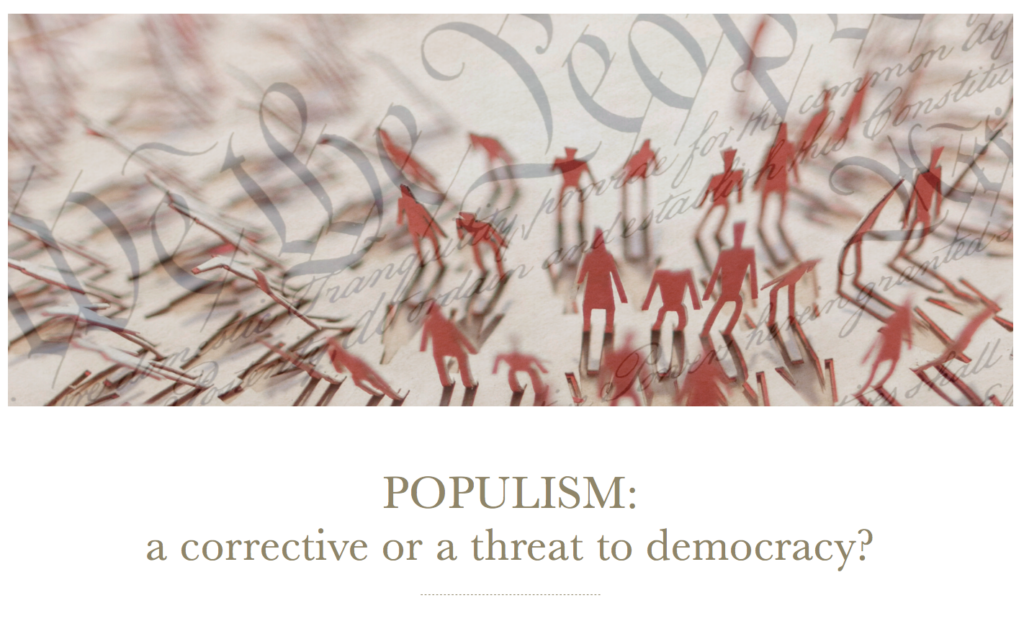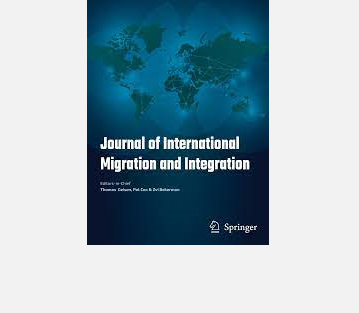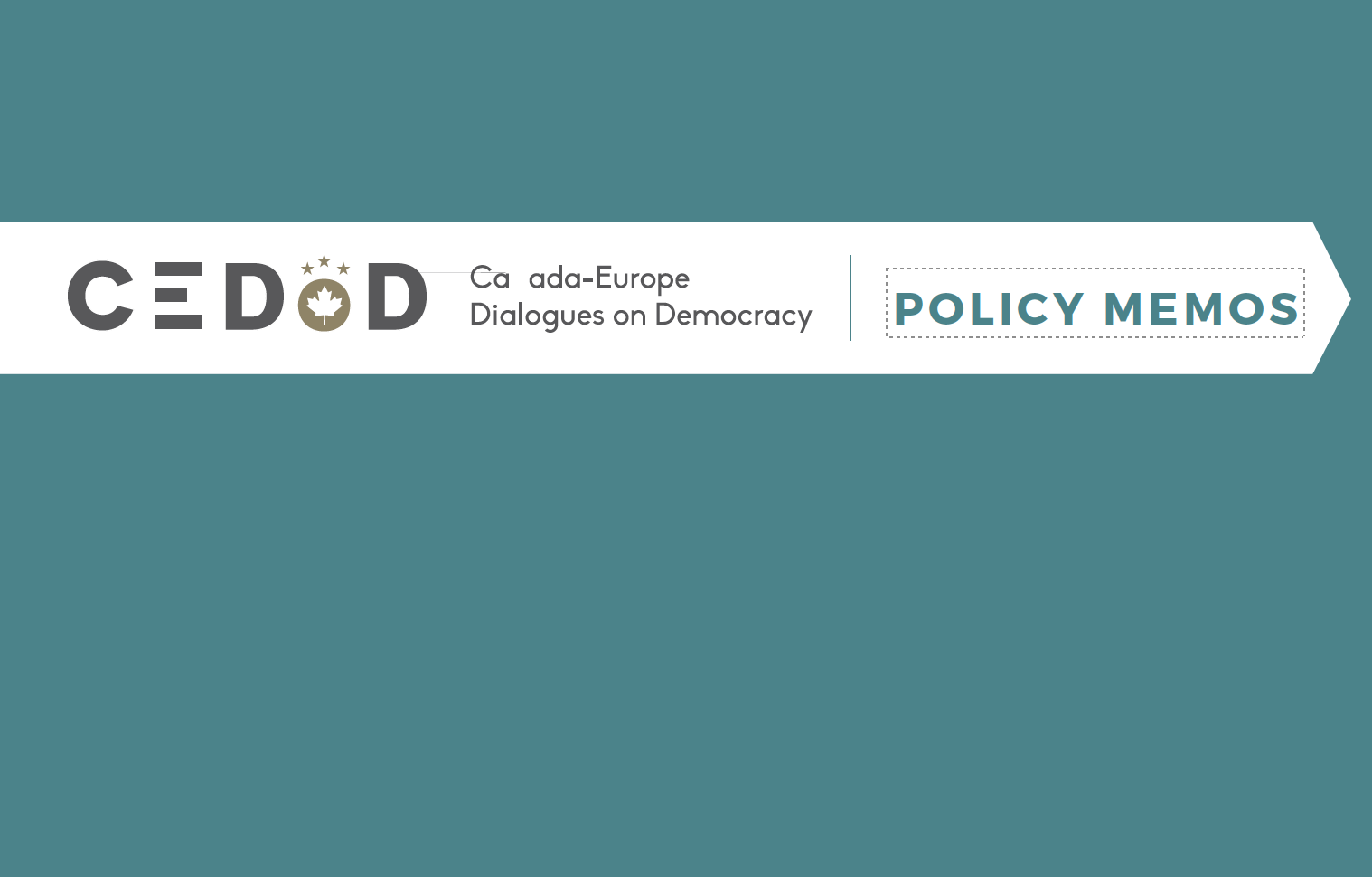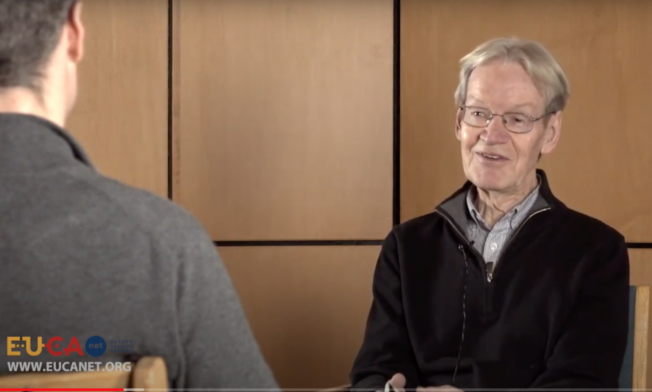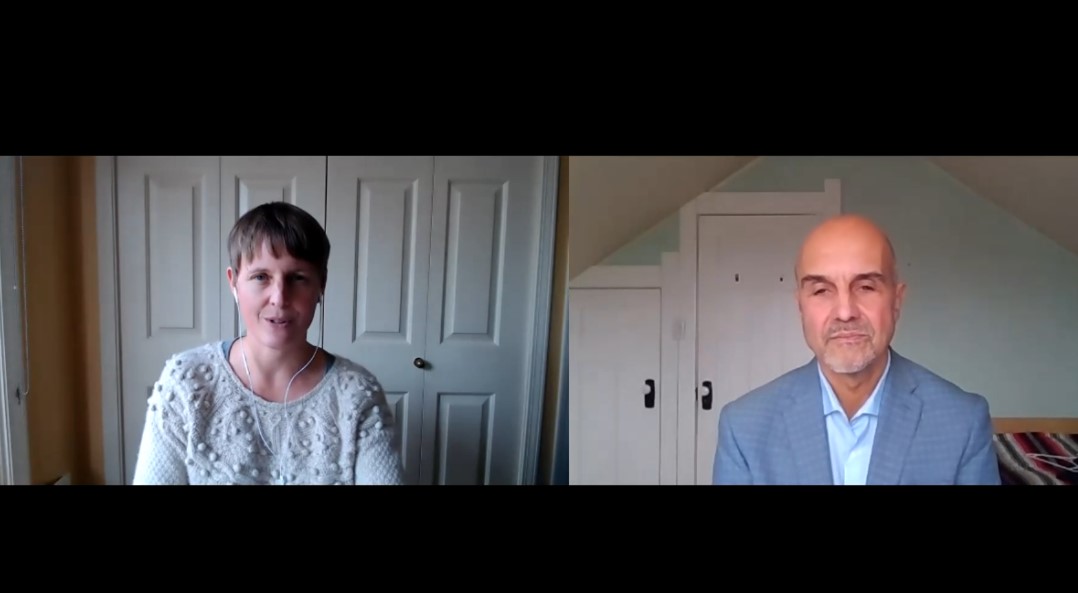Prof. Kristen Rundle: Populism, Constitutionalism, and the Administrative State
Kristen Rundle, Law School, University of Melbourne, participated in the international conference “Constitutionalism in the Age of Populism”, March 6-8, 2020. She gave a paper with the title: “Populism, Constitutionalism, and the Administrative State”.
In her paper, Rundle notes that when analyses of populism turn to the phenomenon of alienation from the established institutional order, the target in view is typically parliamentary institutions. Analyses of democratic constitutionalism similarly focus primarily on legislative institutions, with particular attention to their relationship to the courts. The administrative state tends to be an outlier in both analytical contexts.
Rundle’s paper proposes to examine how trends of institutional design in the contemporary administrative state might be viewed as contributing to the threat posed by populism to democratic constitutionalism. Drawing several of the themes of the colloquium together, this analysis commences from an understanding of the rule of law as a practice of framing governing relationships through the authority of law. Viewed through this prism, certain trends of institutional design in the contemporary administrative state and the conditions of subjectivity they produce might be seen as both a reflection of and as making a specific contribution to wider trends in the decline of democratic legitimacy and the rise of populist forms of political agency.
During the conference, Dr. Kristen Rundle also participated in the video series on “Populism and Democracy” and accepted the invitation to respond to a bold question: “What are the greatest challenges that populism poses to democracy?”.
In this video interview, Rundle stresses the importance of paying attention to the ways in which relationships between governments and their citizens are breaking down. For Rundle, populists are responding to a fundamental failure of responsiveness of governments to the citizens, an aspect of populism that scholars need urgently to consider. As a legal theorist and an administrative lawyer, Rundle suggests not neglecting the “small spaces”, namely “the direct interactions of the citizens with the entities of administrative state”, urging scholars to observe the change that has occurred in “the nature of how governments relate to their citizens” during the last decades, as this development might have made a significant contribution to fomenting populist politics.
Short Bio
Kristen Rundle joined Melbourne Law School in 2015 and became the Co-Director of the Centre for Comparative Constitutional Studies in December 2016. Kristen previously held appointments at the London School of Economics and Political Science, the University of New South Wales and the University of Sydney, as well as adjunct, visiting and honorary appointments at the University of Toronto, Erasmus University, the University of Ottawa, and the Whitlam Institute, Western Sydney University.
Kristen Rundle is an expert in administrative law, legal theory, and public law. Her current research is located at the intersection of legal theory and public law in its effort to trace the conditions necessary for law to act as a limitation on power. Her interest in interactions between legal forms and human agency has also informed her research into the connections between law and the Holocaust, her work on the legal and institutional attributes of the British child migration program, and her ongoing inquiry into questions of theory and practice arising from the neoliberal redesign of the administrative state, especially with respect to contracted-out public functions.
You can read more about Kristen Rundle’s current research here.
This video is part of the CEDoD project and was produced as part of the event “Constitutionalism in the Age of Populism”, which took place on 6-8 March, 2020 in Victoria, BC. CEDoD stands for “Canada Europe Dialogue on Democracy: Democratic Deficit and the Rise of Populism in Europe”. This project is co-funded by the Erasmus+ Jean Monnet Action of the European Union, the Centre for Global Studies, University of Victoria, the Social Sciences and Humanities Research Council of Canada (SSHRC), the Faculty of Law at the Eötvös Loránd University (ELTE), the Australian Government through the Australian Research Council and the University of Victoria: the Faculty of Law, the Centre for Global Studies, Vice President Research Office, Faculty of Humanities and the Faculty of Social Sciences. The European Union support for the production of publications does not constitute an endorsement of the contents which reflect the views only of the authors, and cannot be held responsible for any use which may be made of the information contained therein.



